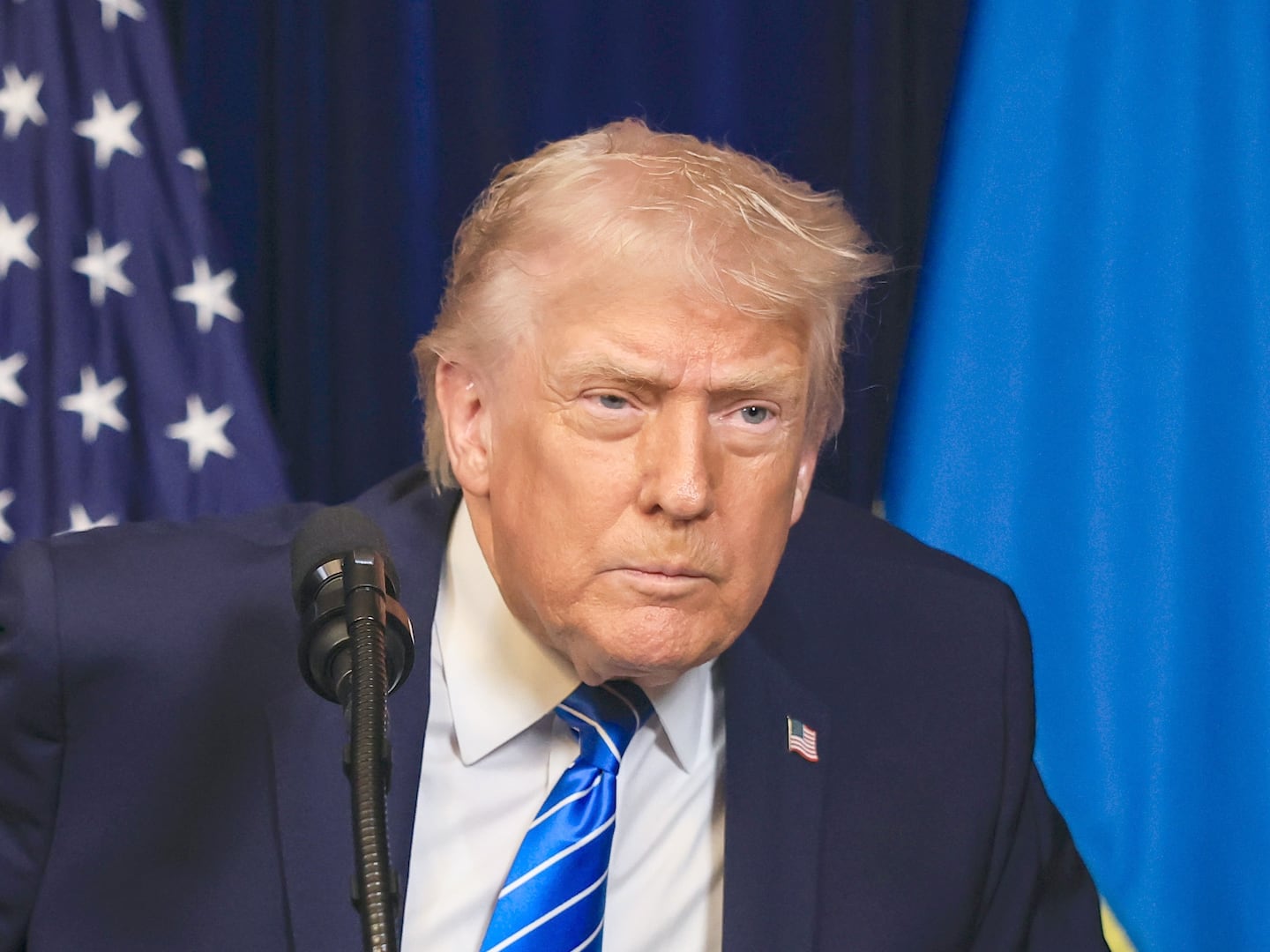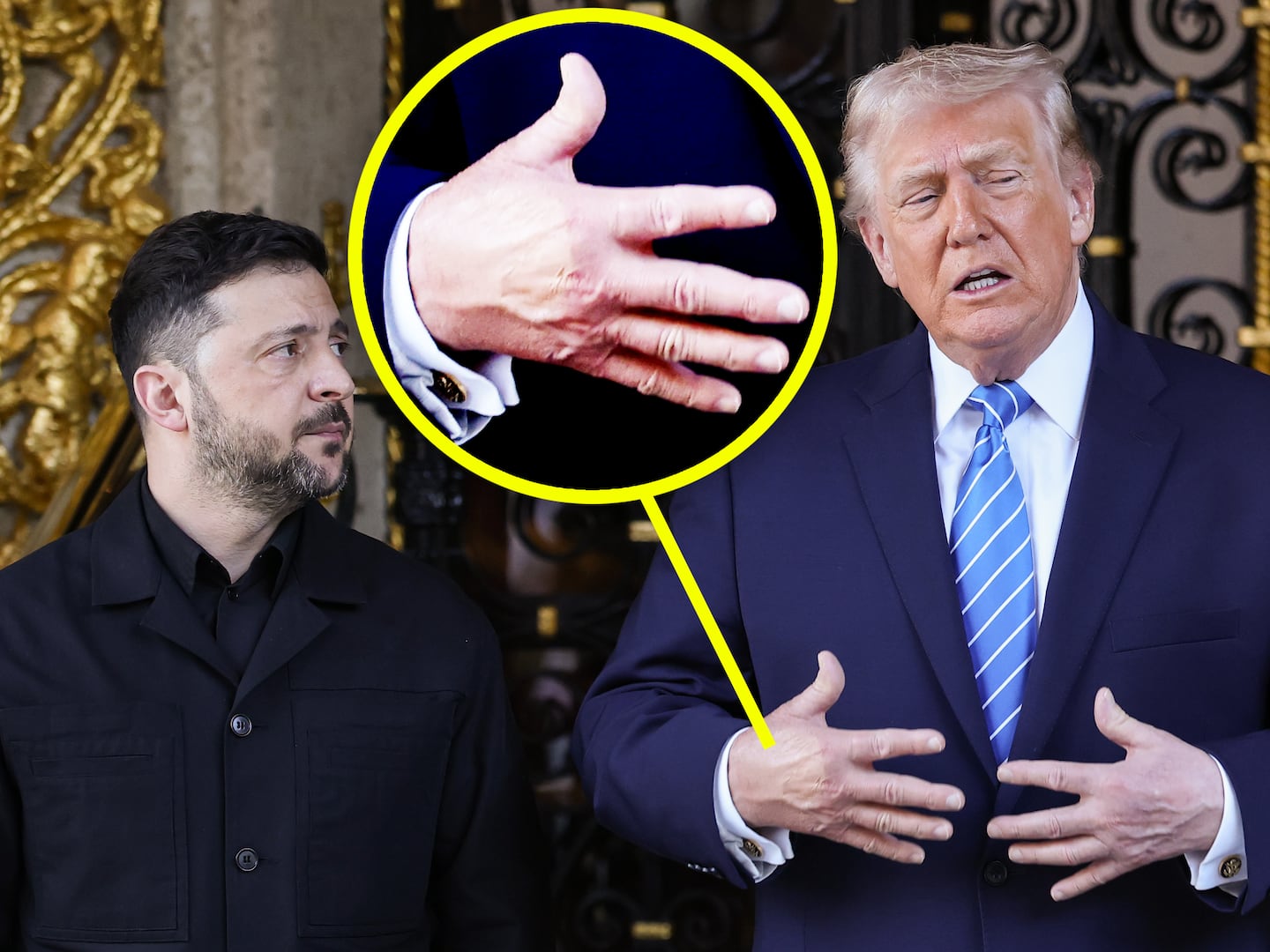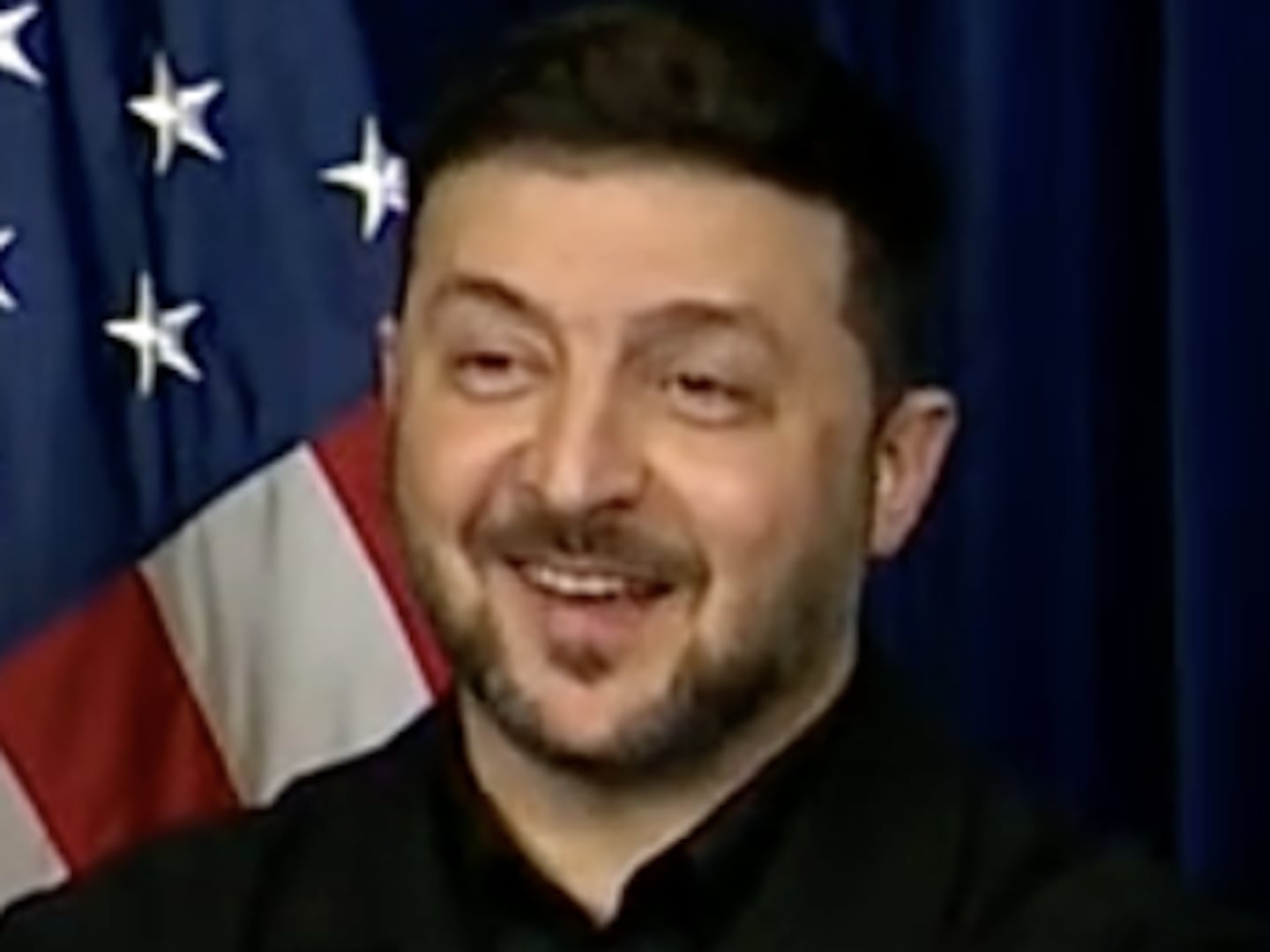During a trial in West Virginia earlier this year, witnesses tell The Daily Beast, a state court judge whipped out his handgun, waved it in the air, and left it on the bench with the barrel pointing directly at the corporate lawyers who had irritated him.
Circuit Judge David W. Hummel Jr., who oversees cases in the tiny city of New Martinsville, repeatedly told The Daily Beast it never happened. When reached by phone in March, he initially professed shock at the allegations. On subsequent phone calls, however, his story kept changing as he claimed to recall more details about the incident.
“I did not have my 1911 at any point during that trial,” he said then, referring to a common type of semi-automatic pistol. “It was secreted in a drawer on the bench. I never showed my 1911 at the trial whatsoever—at any point during that trial.”
That judge is now under investigation by the state’s judiciary for violating the profession’s code of conduct, according to three witnesses now sharing information with law enforcement and official communications about the investigation reviewed by The Daily Beast. The judge’s own staff has since told an investigator that the judge did, in fact, display his gun openly during an attorneys-only hearing and boasted about having it in his possession, according to two of those witnesses.
Hummel insisted to The Daily Beast that there was no recording of the incident that would back up these accusations, but two witnesses say the state investigator has acquired a videotape of the interaction.
“You don’t understand what a terrible victimization it is,” said Lauren Varnado, the attorney who was standing at the podium when the judge pulled out his gun. “It was pretty traumatic for multiple people. The whole trial was insane.”
“We have no power in this situation,” she said. “It was way scarier than even just a normal person on the sidewalk. You need more power over us than you already have right now? That’s frightening, because he could order us to do whatever. Why would you ever need to pull out a gun?”
The judge’s show of force was the culmination of months of building tension between him and Varnado’s team of corporate lawyers. The Daily Beast has reviewed hundreds of pages of court transcripts and spoken to several people involved.
As with many legal battles in West Virginia, it all started with fossil fuels.
Until the case settled recently, Hummel oversaw a dispute involving West Virginia landowners who sued over the royalty payments they get from the natural gas giant EQT for fossil fuels extracted from the earth hundreds of feet below their property.
But the gas company’s lawyers accused the judge of never disclosing that his parents get gas company royalties that may someday pass on to him—sparking questions about a glaring conflict of interest. When the gas company’s lawyers sought to disqualify him, court transcripts show he grew increasingly aggravated at Varnado and her team.
At an April 2021 court hearing in which he was asked about his family’s gas interests, the transcript shows how the judge patronized EQT’s lawyers as he detailed his family tree and dismissed their concerns, ranting about how his cousin “Christy” got mad at him for not recognizing her at a wedding. When the attempt to have higher state courts disqualify him failed, Hummel started the next court hearing in similar fashion.
“Okay. Excellent. And I’m Judge Hummel, and I have no conflicts, Supreme Court said, so here we are. And this time I don’t have to talk about my Aunt Rose’s numerals or which shoe I put on first or anything,” he said on July 19, 2021, according to another transcript.

The dispute revolved around the energy company EQT.
SOPA Images/Photo Illustration by Rafael Henrique/SOPA Images/LightRocket via GettyThe eventual trial was always going to be fiercely contentious. EQT cut its royalty payments nearly a decade ago, shortly before the energy value of the state’s natural gas production began to overtake coal. While the state has relied heavily on the exports of coal and oil since the 1800s, natural gas from the fracking of the massive Marcellus Shale underground has the promise to enrich the state.
By the time the two-week trial started in February in New Martinsville, the locals were so angry at how the gas company had cut their royalties in recent years that EQT lawyers felt the need to be escorted by ex-CIA private security contractors, according to three members of that team. But when lawyers on both sides were called into the century-old sandstone courthouse for a special hearing on Saturday, March 12, bailiffs at the entrance surprised the legal teams with a new rule for the day.
"Trial counsel only today,” they said, according to three witnesses who spoke to The Daily Beast on condition of anonymity, fearing potential reprisal.
Varnado’s private security guard and a paralegal were turned away. The lawyers made their way into the courtroom on the second floor. Once there, according to a transcript, the judge castigated the gas company’s lawyers for having private guards, noting that if there were any concerns about safety, “I promise you, I’ll take care of them.”
“We were never told these folks were security until most recently,” the judge said, according to a court transcript. “I got this man here carrying a man purse, which I make fun of him every damn day for wearing such a sissy-ass contraption. And I hear he has blood coagulant. I have blood coagulant up here too, and I’ve got lots of guns. Like, bigger ones too.”
Hummel then pulled out a black handgun from an over-the-belt leather holster beneath his robe, and started waving it around the room, according to Varnado and another person in the room.
Hummel then put it down on his wooden desk, known as a judge’s bench, and left the barrel pointing at Varnado, her New York law partner David R. Dehoney, and their local West Virginia attorney Jennifer Hicks.
The gun stayed there for the rest of the hearing. When the attorneys were directed to negotiate in a private room, they found the handgun still waiting for them when they returned. When lawyers had to approach the judge, the resting gun remained pointed at their faces.
“It’s just a violation of basic gun safety, having it out like that pointing at people,” Varnado said. “It was too stunning to even process it. My brain didn’t even process it until after the hearing concluded. I was on edge. I don’t know if it was loaded.”
Indeed, pointing a firearm at anything but a target violates the National Rifle Association’s primary rule on gun safety, which is to keep a barrel pointed away from people at all times. And the judge seems to have broken a second rule of safe gun handling, which is to check whether a firearm’s chamber is empty and clear of ammunition—then say so out loud.
In the days after the hearing, Varnado reached out to the FBI to report what happened. But she decided to seek help from the feds 100 miles away in Pittsburgh, concerned that local law enforcement might be untrustworthy given the judge’s position of power and influence.
Varnado still feels confident that was the right move. When The Daily Beast reached out to Wetzel County Sheriff Michael L. Koontz, whose deputies provide security outside the courthouse, the sheriff remembered that a special hearing happened that Saturday morning—but denied any knowledge about the judge pulling out the gun.
However, two sources with direct knowledge say a sheriff’s deputy who was in the courtroom that day has since confirmed to the state investigator that the judge brandished his pistol.
When reached by phone a few weeks after the episode, Hummel first denied anything remarkable ever occurred.
“There is no incident… I absolutely, categorically deny I had a gun that day in the courtroom,” he said. “It was just me and the attorneys. I had no reason to have a firearm that day… I've never shown a gun in my courtroom to anybody. I don’t want them to know that I have it. I do not display my firearm at any time during trial.”
“My job is not to protect anyone with firearms,” he said. “That’s what my bailiffs and deputy sheriffs are for.”
Minutes later, the judge called back and said he now recalled having a holstered gun on him beneath his robe during the trial the previous week. But it wasn’t the 1911 pistol, he said. It was a long, classic-looking revolver that hails from the days of the Wild West.
“I wore the Colt Peacemaker,” he said. “The Peacemaker never ever came out of the holster during that trial.”
When the judge called back a third time, he acknowledged showing something to the attorneys in the courtroom that day. But he said it wasn’t a gun.
“I did pull out a small, red first aid kit. But it was casual. I did show her a foiled packet, and said this is blood coagulant. We have preparations for active shooter situations,” he said.
In April, a spokeswoman with the Supreme Court of Appeals of West Virginia told The Daily Beast that she was not aware of the gun incident. And records showed that Hummel had not been the subject of an admonishment or formal statement of charges.
But in the weeks since, Judicial Investigation Commission of West Virginia investigator David Hudson has been gathering evidence about the incident, asking witnesses to describe the firearm and how they felt about it being displayed by the judge, according to communications reviewed by The Daily Beast.
In a signed affidavit submitted to the investigator, Varnado, who hails from Texas, described the judge’s gun as a “Colt 45,” a widely recognized pistol otherwise known as a 1911.
The judge, his court clerk, a secretary, and a court reporter have all submitted sworn affidavits describing the events that day to the investigator, court reporter Holly A. Kocher told The Daily Beast on Wednesday.
Since March, the FBI’s Pittsburgh field office has repeatedly declined to confirm that a special agent there has been assigned to look into the incident. The judge did not respond to requests for comment on Wednesday.
The state judiciary, citing policy, declined to provide details about the ongoing ethics investigation. But its staff pointed to its website, which indicates that judges who violate the rules face a one-year suspension.







